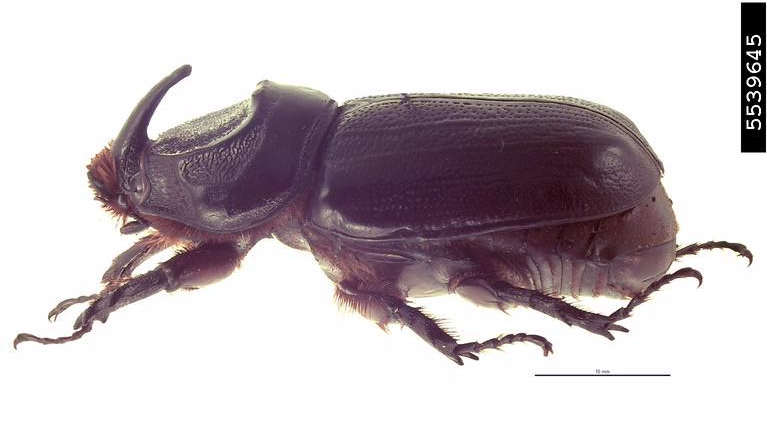Coconut Rhinoceros Beetle on Guam – an update
An adult male coconut rhinoceros beetle. Emmy Engasser, Hawaiian Scarab ID, USDA APHIS ITP, Bugwood.org 10 years ago the Coconut Rhinoceros beetle (CRB) was first discovered on the western Pacific island of Guam. Since then, these shoe-shine black, miniature invaders have spread to all parts of the island and are laying waste to the local coconut…
Fall armyworm could cost Africa $2bn+ in lost harvest
Last week, CABI confirmed that since it arrived in Africa in 2016, the Fall Armyworm (FAW) has been reported in 28 African countries, presenting a now permanent agricultural challenge for the continent. FAW mainly affects maize and can cut yields by up to 60%. In research funded by the UK’s Department for International Development (DFID), CABI…
E-plant clinics pilot launched in Bangladesh
Plantwise programme was launched in Bangladesh with Plant Protection Wing (PPW), Department of Agricultural Extension (DAE) in 2015 after signing MOU with Ministry of Agriculture and Economic Relations Division of Ministry of Finance. The programme initially started with establishment of 10 plant clinics in 5 districts and is gradually scaled up to 30 plant clinics…
INIA y Plantwise desarrollan entrenamiento en uso seguro de plaguicidas
La agricultura en el Perú se ha expandido rápidamente desde el 2000. Según el Instituto Nacional de Estadística e Informatica del Perú, el Producto Bruto Interno agrícola se ha más que duplicado entre 2000-2016. Este crecimiento estuvo relacionado a la ocupación de nuevas áreas agrícolas, pero…
How ICTs are key to Plantwise's sustainability
The Plantwise programme has expanded in terms of its plant clinic network, the number of countries involved and the number of farmers reached since its launch in 2011. This expansion has been facilitated to a significant extent by an ICT infrastructure, i.e. the Knowledge Bank and e-plant clinics (plant clinics equipped with tablets). Mozambique, Nepal, Malawi, Nicaragua…
Side event on fall armyworm at AGRF 2017 [livestream]
In 2016 the fall armyworm, a major pest in the Americas, was found in Africa for the first time. Since then it has rapidly spread across much of sub-Saharan Africa. The caterpillar feeds on more than 80 different plants, but maize is its preferred host, the most widely grown crop in Africa and a staple…
Managing Tuta absoluta in Agricultural production systems
Adapted from ‘Tomato leaf miner/ American leaf miner management in Agricultural production systems (Distribution, biology, damage and integrated management)’ written by Koppert Biological Systems. The tomato leaf miner, Tuta absoluta, is a devastating pest of tomato. Originating from Latin America, T. absoluta has spread via infested fruits and packaging material to Europe, North Africa and the…
Extender del Programa Plantwise a Nuevas Áreas del Perú
Con el apoyo de todas las agencias de donantes que apoyan el programa Plantwise y a traves de un trabajo conjunto con el INIA y gobiernos locales el programa INIA-CABI Plantwise viene siendo implementado en el Perú desde el 2012. A través de la utilización de los Módulos de Asistencia Técnica – Clínicas de Plantas como…
Update: New Pest & Disease Records (24 Aug 17)
We’ve selected a few of the latest new geographic, host and species records for plant pests and diseases from CAB Abstracts. Records this fortnight include a first report of Citrus leaf blotch virus in lemon in China, first report of Groundnut bud necrosis virus infecting periwinkle (Catharanthus roseus) in India and the first report of Colletotrichum…
Gender and Agricultural Extension
Did you know that women produce more than half of all food grown worldwide, and in sub-Saharan Africa women produce up to 80% of all food (FAO, 2011)? Yet across Asia and Africa it is common that women are not given access to the same amount of resources as men, whether that is money, land,…




